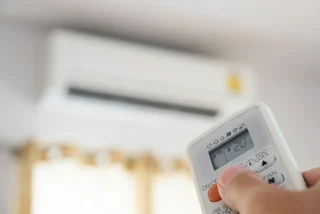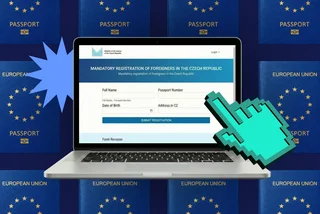If you’re living in Czechia, you may be struggling with the current hot weather no matter if you're in an office, outside, or at home. But what legal rights do you have during heatwaves, and does your employer have a legal obligation to cater to your needs?
During a heatwave, being instructed to stay home or leave the office early is unlikely, though not impossible. The Czech Labor Code does not impose an obligation to send employees home during heatwaves. However, employers may need to make some concessions to provide a suitable working environment.
PARTNER ARTICLE
According to the country's labor code, an employer "is obliged to create a safe and health-safe work environment and working conditions by the appropriate organization of safety and health protection at work and by taking measures to prevent risks." Simply put, if an employer is unable to ensure reasonable working conditions during hot weather, they may ask an employee to work from home.
Breaks and water
Attorney Hračja Grigoryan from MELKUS KEJLA & PARTNERS told Expats.cz that an employer is legally obliged to provide employees with regular (paid) breaks to ensure safety if the workplace temperature reaches 36 degrees Celsius.
Under a government regulation that sets health protection conditions at work, jobs are grouped into eight categories based on physical effort. This is important during hot weather because workers with more physically demanding jobs, like outdoor construction workers, must be given mineral-infused water by law if temperatures go above 30 degrees Celsius. Grigoryan also told us that for office-based employees, clean tap water is sufficient.
Air conditioning and outdoor temperatures
Discussions on air conditioning in offices can often get heated. According to Czech law, for work that is mainly carried out in a sitting position and does not require significant physical activity, such as office work, the maximum permitted temperature is 27 degrees Celsius.
While Grigoryan notes that there is no legal obligation for offices to have air conditioning, if air conditioning isn't available employers must still ensure suitable indoor working conditions.
Ministry of Labor and Social Affairs spokesperson Eva Davidová told Seznam Zprávy that adequate "microclimatic conditions at the workplace are one of the basic prerequisites for a health-safe working environment, which is linked to the general provisions of the Labor Code."
These laws apply to both employees on a traditional work contract and self-employed contractors employed by a company or individual. Notably, people who work mainly (or fully) from home – regardless of the weather – are also covered by the same occupational safety regulations. Czech law assumes that home workers have their own access to clean drinking water.
Employees' rights and compensation
In summer, the difference between the indoor and outdoor temperatures should not be more than 6 degrees Celsius for health reasons, unless the weather outside exceeds 30 degrees Celsius. Employers have a legal responsibility to adhere to these maximum limits and provide a safe working environment.
If an employer fails to ensure the health and safety of employees during hot weather then they are liable to legal action. For example, if the indoor temperature as per government regulation is not respected and the employee has to go on sick leave because of this, employees can demand compensation for damages.
Working in hot weather is often unpleasant and can make tasks more difficult than usual. However, you should not forget your rights to reasonable working conditions, adequate health protection, and the right to information and training regarding workplace safety during heatwaves.
The Czech Labor Code provides relief to employees during excessively hot weather. Workers who believe that their company is failing to ensure a safe working environment may seek financial compensation or contact the State Labor Inspection Office.












 Reading time: 3 minutes
Reading time: 3 minutes 

























